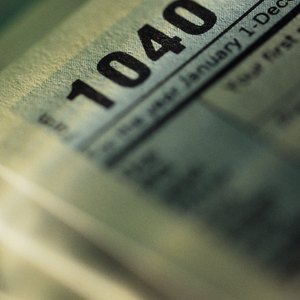
Working for yourself cleaning houses can be very rewarding, both personally and financially. But when you are self-employed, you can face a significantly higher tax burden than your traditionally employed peers. Understanding the implications of those taxes is essential, whether you are moving from a full-time job to a business career or just cleaning a few houses on the side.
Federal Income Taxes
The money you earn from your self-employment is taxed as regular income on your federal tax return. The same tax brackets apply for self-employment income and the income you make at an employer.
So, if you earn $30,000 during the 2021 tax year, you’ll pay 12 percent tax on that income. The only difference is you have to pay this money to IRS yourself, as there is no employer to withhold the taxes from your paycheck.
The difference with self-employment taxes is that you claim for expenses that are related to your work. For example, you can claim the cost of cleaning supplies, safety clothing and insurance, as well as a mileage allowance if you drive to your clients' homes or places of businesses.
Read More: What are Self-Employed Taxes?
Social Security Taxes
When you are self employed, either as a house cleaner or in another line of work, the Internal Revenue Service, IRS, considers you to be both the employer and the employee. What that means from a tax perspective is that you must pay both the employer and the employee side of the levy that funds the Social Security program.
As of 2022, that means you must pay 6.2 percent of your income as an employee of your self-employed house cleaning business. In addition, you must pay another 6.2 percent as the employer share.
Dual Medicare Taxes
As a self-employed house cleaner and small business owner, you must also pay both the employer and the employee side of the Medicare tax. As of 2022, both the employer and the employee must pay 1.45 percent of their income in Medicare taxes. That means that the self-employed must pay the full 2.9 percent, which represents both the employer and the employer side of the tax.
Read More: How Is the Medicare Tax Calculated?
State and Local Taxes
As a self-employed business owner, you may also be required to pay state and local taxes on the money you make. Look at your last self-employed house cleaner state tax return and see if it contains a section for business income or self-employment income.
If so, you must pay taxes to the state revenue department on the money you make cleaning houses. The same is true of your local taxes if the return includes a section for reporting business income.
Estimating Your Taxes
If you expect to owe more than $1,000 to the IRS, the tax agency may require that you make estimated quarterly tax payments instead of simply paying once a year like you are used to. If you believe you may be held to this requirement, you should check with an accountant or tax planner to be sure.
The tax planner or accountant can also help you determine how much you should pay to the IRS each quarter to avoid additional taxes and penalties.
References
Writer Bio
Based in Pennsylvania, Bonnie Conrad has been working as a professional freelance writer since 2003. Her work can be seen on Credit Factor, Constant Content and a number of other websites. Conrad also works full-time as a computer technician and loves to write about a number of technician topics. She studied computer technology and business administration at Harrisburg Area Community College.

